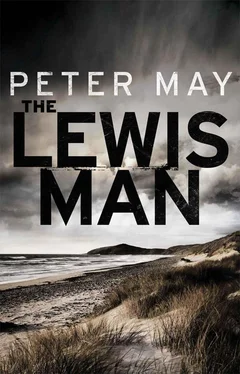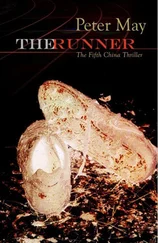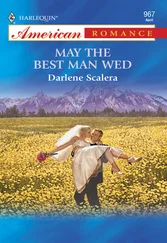Peter May - The Lewis Man
Здесь есть возможность читать онлайн «Peter May - The Lewis Man» весь текст электронной книги совершенно бесплатно (целиком полную версию без сокращений). В некоторых случаях можно слушать аудио, скачать через торрент в формате fb2 и присутствует краткое содержание. Жанр: Триллер, на английском языке. Описание произведения, (предисловие) а так же отзывы посетителей доступны на портале библиотеки ЛибКат.
- Название:The Lewis Man
- Автор:
- Жанр:
- Год:неизвестен
- ISBN:нет данных
- Рейтинг книги:3 / 5. Голосов: 1
-
Избранное:Добавить в избранное
- Отзывы:
-
Ваша оценка:
- 60
- 1
- 2
- 3
- 4
- 5
The Lewis Man: краткое содержание, описание и аннотация
Предлагаем к чтению аннотацию, описание, краткое содержание или предисловие (зависит от того, что написал сам автор книги «The Lewis Man»). Если вы не нашли необходимую информацию о книге — напишите в комментариях, мы постараемся отыскать её.
The Lewis Man — читать онлайн бесплатно полную книгу (весь текст) целиком
Ниже представлен текст книги, разбитый по страницам. Система сохранения места последней прочитанной страницы, позволяет с удобством читать онлайн бесплатно книгу «The Lewis Man», без необходимости каждый раз заново искать на чём Вы остановились. Поставьте закладку, и сможете в любой момент перейти на страницу, на которой закончили чтение.
Интервал:
Закладка:
‘Oh, did he?’ Professor Mulgrew did not look pleased. ‘Unlikely to provide any enlightenment, of course, but you never know. Ah …’ His attention was suddenly taken by the skull, revealed finally by the peeling back of the scalp. ‘Interesting.’
‘What is?’ Gun reluctantly moved a little closer.
‘Beneath our chap’s surgical scar here … a small metal plate sewn in to protect the brain.’
Gunn saw a rectangular, dull grey plate about two inches long, sewn into the skull with metal sutures looped through holes at either end of it. It was partially obscured by a layer of lighter grey scar tissue.
‘An injury of some kind. And very probably a little mild brain damage.’
At Mulgrew’s request Gunn stepped out into the corridor and watched through the window that gave on to the autopsy room as the pathologist took an oscillating saw around the top of the skull to remove the brain. When he went back in, the professor was examining it in a stainless-steel bowl.
‘Yes … as I thought. Here …’ He poked at it with his finger. ‘Cystic encephalomalacia of the left frontal lobe.’
‘Meaning?’
‘Meaning, my friend, that this poor bugger didn’t have much bloody luck. He had some kind of head injury that damaged the left frontal lobe, and probably left him … how can I put it … one sandwich short of a picnic?’
He returned to the skull, and with a delicate scraping of his scalpel, pared away the film of tissue growing over the metal plate.
‘If I’m not mistaken, this is tantalum.’
‘What’s that?’
‘A highly corrosion-resistant metal pioneered in the first half of the twentieth century in cranioplasty. Quite often used during the Second World War to repair shrapnel wounds.’ He leaned closer in as he scraped deeper into the metal. ‘Highly biocompatible, but tended to produce terrible headaches. Something to do with electroconductivity, I think. The development of plastics in the sixties superseded it. Now it’s used mainly in electronics. Aha!’
‘What?’ Gunn overcame his natural reticence to get even closer.
But Professor Mulgrew simply turned away to rummage in his pathologist’s toolkit, which sat up on the counter beside the sink. He returned with a three-inch-square magnifying glass which he held between thumb and forefinger to hover it over the tantalum plate.
‘Thought so.’ There was a hint of triumphalism.
‘Thought what?’ Gunn’s frustration was evident in his voice.
‘The manufacturers of these plates often engraved them with serial numbers. And in this case a bloody date.’ He stepped back, inviting Gunn to take a look.
Gunn took the magnifying glass and held it gingerly above the skull, screwing up his face as he leaned in close to see for himself. Beneath a ten-digit serial number were the Roman numerals MCMLIV.
The pathologist beamed. ‘That’s 1954 in case you hadn’t worked it out. About two years before he had his Elvis tattoo. And judging by the amount of tissue growth, three years, maybe four, before he was murdered on the beach.’
SIX
At first Fin was completely disorientated. There was an intermittent beating in his ears above the sound of wind and water. He was hot, sweating profusely beneath the covers, but his face and hands were cold. A strange blue light permeated the brightness that dazzled him when he opened his eyes. It took a full thirty seconds before he remembered where he was, and saw the white lining of his tent breathing erratically in and out like a runner gasping for air at the end of a race. All around him was a shambles of clothes, a half-unpacked canvas satchel, his laptop, and a scattering of papers.
In the failing light he had chosen a patch of ground which had seemed relatively flat for the pitching of his two-man tent. But now he realized that it sloped with the land down towards the cliffs and the sea beyond. He sat upright, listening for a moment to the guy ropes creaking and straining at their pegs, then slipped out of his sleeping bag and into some fresh clothes.
Daylight blinded him as he unzipped the outer shell and crawled on to the hill. There had been rain during the night, but already the wind had dried the grass. He sat in it, barefoot, pulling on his socks, and screwing up his eyes against the glare of sunlight on the ocean, a burned-out ring of luminescence that flared briefly before the gap in the clouds above it closed, like turning off a light switch. He sat, knees pulled up to his chest, forearms resting on top of them, and breathed the salt air, and smelled peat smoke and damp earth. The wind tugging at his short, fair curls stung his face and sent a wonderful sense surging through him of simply being alive.
He looked back over his left shoulder and saw the ruins of his parents’ crofthouse, an old whitehouse, and beyond it the remains of the blackhouse where his forebears had lived for centuries, and where he had played as a child, happy and secure, never once imagining what life might hold in store for him.
Above that the road wound down the hill through the strung-out collection of disparate dwellings that made up the village of Crobost. Red tin roofs on old loom sheds, houses whitewashed or pink-harled, irregular fenceposts, tufts of wool snagged on barbed wire fluttering in the wind. The narrow strips of land known as crofts ran down the slope towards the cliffs, some cultivated to raise basic crops, grains and root vegetables, others supporting nothing but sheep. The discarded technology of distant decades, rusted tractors and broken harvesters, littered overgrown plots, the rotting symbols of a once hoped-for prosperity.
Beyond the curve of the hill, Fin could see the dark roof of Crobost Church dominating both the skyline and the people over whose lives its shadow fell. Someone had hung out washing at the manse, and white sheets flapped furiously in the wind like demented semaphore flags urging praise and fear of God in equal measures.
Fin loathed the church and all it stood for. But there was comfort in its familiarity. This, after all, was home. And he felt his spirits lifted.
He heard his name carried on the wind as he pulled on his boots, and he turned, scrambling to his feet, to see a young man standing by his car where he had abandoned it at the gate of the crofthouse the night before. He set off, wading through the grass, and as he got closer, saw the ambivalence in his visitor’s smile.
The young man was about eighteen, a little less than half Fin’s age, with fair hair gelled into spikes, and cornflower-blue eyes so piercingly like his mother’s that they raised goosebumps on Fin’s arms. For a moment they stood in awkward silence sizing each other up, before Fin reached out a hand and the boy gave it a brief, firm shake.
‘Hello, Fionnlagh.’
The boy thrust his jaw in the direction of the pale-blue tent. ‘Just passing through?’
‘Temporary accommodation.’
‘It’s been a while.’
‘It has.’
Fionnlagh paused for a moment, to give his words emphasis. ‘Nine months.’ And there was a definite accusation in them.
‘I had a whole life to pack up behind me.’
Fionnlagh canted his head a little. ‘Does that mean you’re back to stay?’
‘Maybe.’ Fin turned his gaze over the croft. ‘This is home. It’s where you come when you’ve nowhere else to go. Whether or not I stay … well, that remains to be seen.’ He turned green eyes back on the boy. ‘Do folk know?’
Their eyes locked for several seconds in a silence laden with history. ‘All that anyone knows is that my father died out on An Sgeir last August during the guga hunt.’
Fin nodded. ‘Fair enough.’ He turned to open the gate and walked down the overgrown path to what had once been the front door of the old whitehouse. The door itself was long gone, a few remaining pieces of rotten architrave still clinging to the brick. The purple paint with which his father had once lavished every wooden surface, including the floors, was still discernible in odd, flaking patches. The roof was largely intact, but the timbers were decayed and rainwater had streaked every wall. The floorboards were gone, leaving only a few stubborn joists. It was a shell of a place, no trace remaining of the love that had once warmed it. He heard Fionnlagh at his shoulder and turned. ‘I’m going to gut this place. Rebuild it from the inside out. Maybe you’d like to give me a hand during the summer holidays.’
Читать дальшеИнтервал:
Закладка:
Похожие книги на «The Lewis Man»
Представляем Вашему вниманию похожие книги на «The Lewis Man» списком для выбора. Мы отобрали схожую по названию и смыслу литературу в надежде предоставить читателям больше вариантов отыскать новые, интересные, ещё непрочитанные произведения.
Обсуждение, отзывы о книге «The Lewis Man» и просто собственные мнения читателей. Оставьте ваши комментарии, напишите, что Вы думаете о произведении, его смысле или главных героях. Укажите что конкретно понравилось, а что нет, и почему Вы так считаете.












